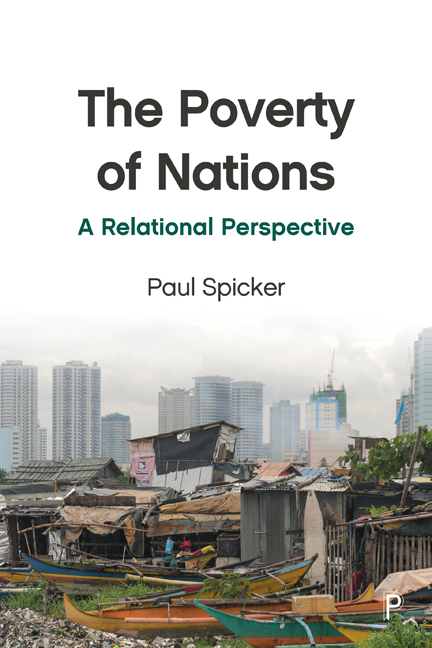Summary
As the policy communities dealing with poverty have come to be aware of the relational elements of poverty, the discourse they engage in – the terms in which poverty is discussed – has had to be adapted to allow the issues to be addressed. One of the most prominent elements in this discourse has been a focus on exclusion and inclusion. People are poor, Townsend argued, if ‘Their resources are so seriously below those commanded by the average individual or family that they are, in effect, excluded from ordinary living patterns, customs and activities.’ There are two key issues there which take us beyond the starting point of a lack of resources. One is the emphasis on participation in society: part of the experience of poverty is that living in society depends on interactions with other people. The other is the idea of exclusion: that people's social relationships lead to them being denied the option of living the way that other people live. Exclusion and impaired participation in society are integral to the experience of poverty. For the United Nations, ‘social exclusion describes a state in which individuals are unable to participate fully in economic, social, political and cultural life, as well as the process leading to and sustaining such a state.’ Bhalla and Lapeyre observe that while other ideas of poverty have typically focused on issues of distribution, the idea of exclusion shifts the focus towards relationships.
Levitas and her colleagues have developed a concept of social exclusion as a multidimensional set of issues, taking into account resources, quality of life and participation in society. The issues include:
Resources
◦ Material/economic resources
◦ Access to public and private services
◦ Social resources
Participation
◦ Economic participation
◦ Social participation
◦ Culture, education and skills
Political and civic participation
Quality of life
◦ Health and well-being
◦ Living environment
◦ Crime, harm and criminalisation
As ever, most of the issues under consideration in that list are relational (and that includes resources); it is difficult to distinguish this from a relational concept of poverty
- Type
- Chapter
- Information
- The Poverty of NationsA Relational Perspective, pp. 77 - 88Publisher: Bristol University PressPrint publication year: 2020

